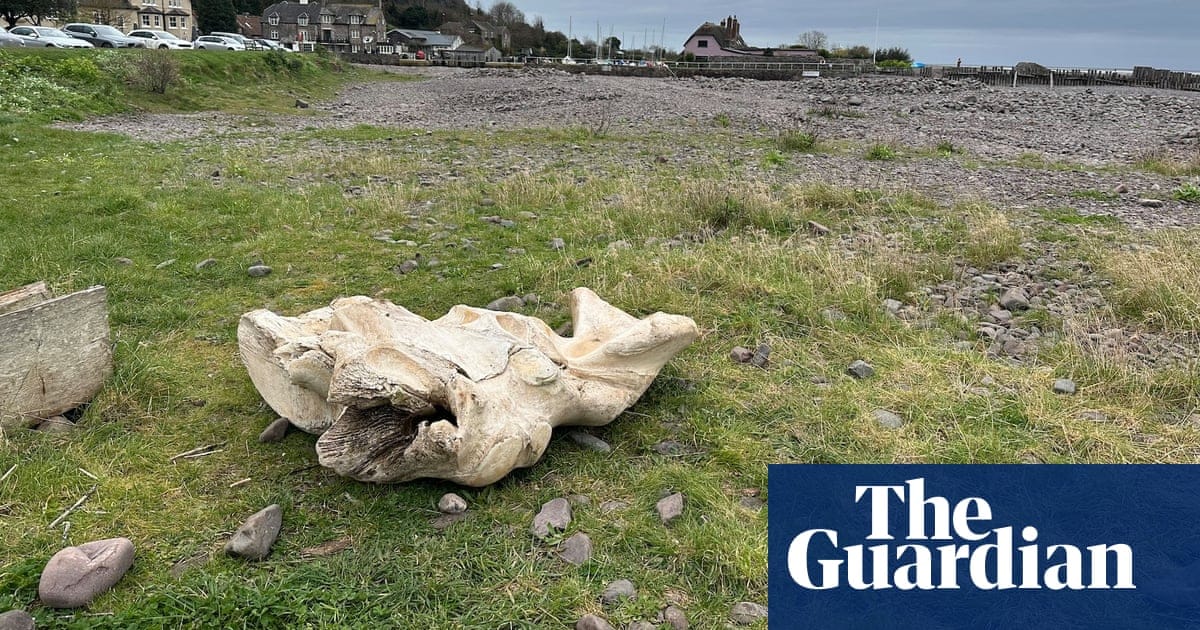Country diary: A giant of the sea, reduced to a fragment | Sara Hudston

Source: The Guardian
Author: Sara Hudston
Porlock Weir, Somerset: This fin whale died in the Bristol Channel back in October; its sutured skull is all that remains
At Porlock Weir to see the gigantic spring tide, I did not expect to find the skull of a fin whale (Balaenoptera physalus). Sea-bleached and battered, it lay next to a pile of logs a little above the high‑water mark.
At first, I thought it was merely a lump of old plastic, perhaps a polythene barrel twisted out of shape by winter storms. It had something of the yellowy‑whiteness and sculptural, moulded contours of injected polystyrene.
Tutting to myself about the amount of waste washed up on our beaches, I went for a closer look. It was obviously bone, with sutures running in lines of indecipherable handwriting where the skull plates fused. One side had broken off where an eye socket would have been, revealing the marrow reamed out like the inside of a rotted tree trunk. At the back was a gruesome opening with a stub of spinal cord within, much gnawed and pecked by rats and gulls. The spectacular long jaw with its hanging curtains of baleen was long lost, smashed away by the sea.
How did I know what species it was? Back in late October, a dead fin whale about 50 feet long was recorded floating in the Bristol Channel. I don't know why it died. These are the second biggest cetaceans after blue whales, and this specimen was not particularly large for its kind.
The body drifted into Porlock Bay, where it first washed up on the stony promontory at Gore Point. The tide took it out again, but a high return in early November brought it back. This time the waves draped it over the harbour groynes, where it lay like a massive, rotting evening glove.
Here it stuck fast, and stank. The carcass was reported, and then sawn in half so that the action of the sea could disperse it naturally. It took some weeks before the water was clear of whirling shreds of flesh - a feast for crabs. I thought it had all gone. But there was the skull beside the harbour car park, both everyday and extraordinary, detritus and treasure, worth everything and nothing.
